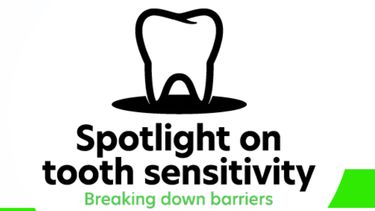Consumption and Health
By focusing on the relationship between consumption and health over the life course, our mission is to develop new multidisciplinary collaborations capable of producing international quality research and impact.

Our Aims
The aim of this research workstream is to focus on the relationship between consumption and health over the life course. Our mission is to develop new multidisciplinary collaborations capable of producing international quality research and impact, and so contribute substantially to HELSI’s vision.
We will examine the relationship between consumption and health through the following series of themes and cross-cutting ideas.
- Consumption and health, wellbeing across the lifecourse
- Policy and consumption
- Food and sustainability, health and consumption
- The commercial determinants of health/ill health
Leadership, Staff and PhD students
Leadership Team
Staff Members
- Dr Kate Weiner, Sociological Studies
- Dr Laura Fenton, Population Health, School of Medicine and Population Health
- Dr Claire Jones, University of Kent
- Dr Michaela Goodwin, University of Manchester
- Emeritus Professor Sarah Nettleton, University of York
- Dr Deborah Moore, University of Liverpool
- Dr Robert Porter, University of Ulster
- Dr Meesha A Warmington, School of Education
PhD Students
- Dua'a T Almegbil, University of Sheffield
- Anna Beaven, University of Sheffield
- Lijiaozi Cheng, University of Sheffield
- Benjamin Raven, University of Sheffield
- Heba R Salama, University of Sheffield
- Johanna K Thurlow, University of Sheffield
- Ann-Marie H Thomas, University of Sheffield
- Olivia Turner, University of Sheffield
- Samantha Watt, University of Sheffield
- Fiona M Wilson, University of Sheffield
- Kathy (Kaixi) Xu, University of Sheffield
- Bettina Zenz, School of Clinical Dentistry
Capabilities
We have expertise in:
- The use of large datasets - including the English Longitudinal Study of Ageing (ELSA), US Health and Retirement Study (HRS), American Hospital Association, Understanding Society: Waves 1-11, 2009-2020 and Harmonised BHPS: Waves 1-18, 1991-2009, Market research datasets involving brand level information
- Co-production - we have teams of researchers who are working with local government, charities and a range of participants using co-production.
- Public Health - our team includes expertise in Epidemiology, policy analysis, trend analysis and evaluation methodologies.
- Applied Economics - marginal propensity to consume by age, health and income, microsimulation, cost-effectiveness analysis
- GIS - mapping - advertising across the city of Sheffield (gambling, alcohol).
- Quantitative methods - SEM, Surveys, Economics.
- Microsimulation
- Natural language processing
- Qualitative methodologies - ethnography, visual methods, interviews
- Critical disability studies - understanding ableism and disablism.
- Policy evaluation and appraisal - including both retrospective and prospective analyses of enacted and hypothetical interventions.
Our staff have experience working with commercial and private sector organisations, health service professionals, charities, local and national government.
Case Studies
Tracking ourselves is a research project exploring the everyday practices of people who undertake self-monitoring using devices acquired independently of health professionals.
House of Tracking is an interactive web tool that showcases some of the key findings from the tracking ourselves research project.
Tasty Spoon
This project, which is funded through the Alzheimer Society’s Accelerator Programme, is a breakthrough technological aid being developed to help people experiencing a loss of taste as a symptom of the neurological condition to maintain a level of healthy nutrition.
Spotlight on Tooth Sensitivity: Breaking Down Barriers
In collaboration with Haleon, this project explores new ways to reframe dentine hypersensitivity to enable dental health care practitioners and patients to better manage the condition. This is based on the development and validation of the Dentine Hypersensitivity Experience Questionnaire, which could validate differences in the responsiveness to treatments of differing efficacy.
The Dentine Hypersensitivity Experience Questionnaire: a longitudinal validation study
Key publications (in alphabetical order)
- Goodley, D., Lawthom, R., Liddiard, K. and Runswick-Cole, K. (2023) ‘Affect,
dis/ability and the pandemic’, Sociology of Health and Illness (SHI) Special issue ‘New
Dialogues Between Medical Sociology and Disability Studies’, 45(6): 1187-1204. - Martin, P., de Saille, S., Liddiard, K. and Pearce, W. (2022) Being Human During
COVID-19. Bristol: Bristol University Press - Williams, R., Weiner, K., Henwood, F. & Will, C. (2020) Constituting practices, shaping
markets: remaking healthy living through commercial promotion of blood pressure monitors
and scales, Critical Public Health, 30, 1, 28-40. - Morgner, Christian; Spencer Hazel, Justine Schneider and Victoria Tischler (2019)
Conduct in Dementia: The Application of Video-Analysis for the Study of Arts Interventions,
Sociological Research Online. 24(4): 514–540. - Gibson, B. J., J. E. Kettle, P. G. Robinson, A. Walls and L. Warren (2019). Oral care as a
life course project: a qualitative grounded theory study. Gerodontology 36(1): 8-17. - Weiner, K. and Will, C. (2018) Thinking with care infrastructures: people, devices and
the home in home blood pressure monitoring. Sociology of Health & Illness, 40, 2, 270-282. - Gibson, B. J., P. V. Sussex, R. P. Fitzgerald and W. M. Thomson (2017). Complete
tooth loss as status passage. Sociology of Health & Illness 39 (3): 412-427. - Weiner, K. & Will, C. (2015), Materiality matters: blurred boundaries and the
domestication of functional foods. BioSocieties 10, 194–212 - Will, C. & Weiner, K. (2015), The drugs don't sell: DIY heart health and the over-the-
counter statin experience. Social Science and Medicine, 131, 280-288. - Will, C. & Weiner, K. (2014), Sustained multiplicity in everyday cholesterol reduction:
repertoires and practices in talk about ‘healthy living’, Sociology of Health & Illness 36, 2,
291-304. - Weiner, K. (2011) The subject of functional foods: accounts of consuming foods
containing phytosterols, Sociological Research Online, 16, 2, 7.
http://www.socresonline.org.uk/16/2/7.html - Weiner, K. (2010) Configuring users of cholesterol lowering foods: a review of
biomedical discourse, Social Science and Medicine, 71, 9, 1541-1547.





